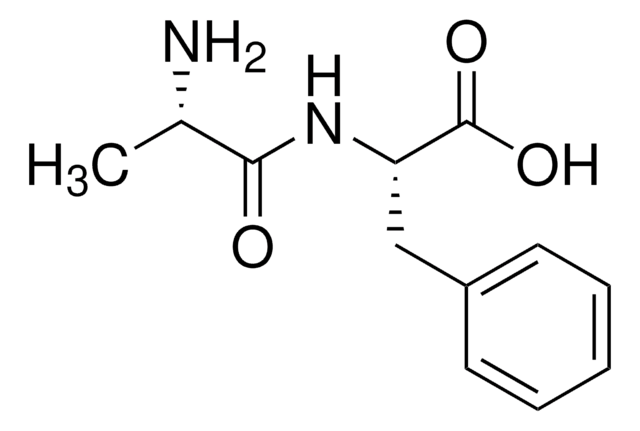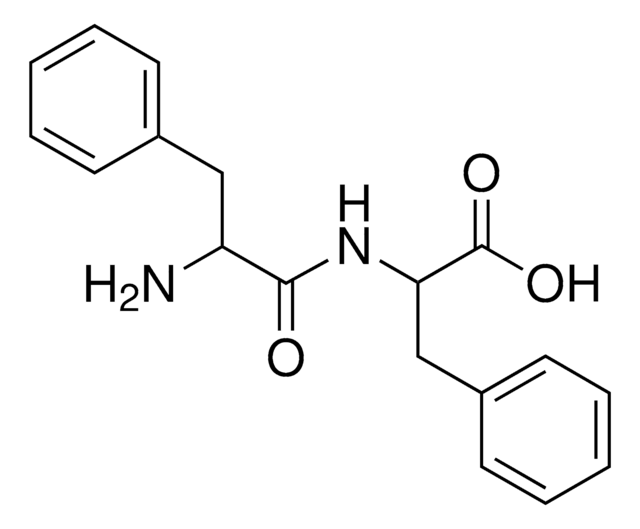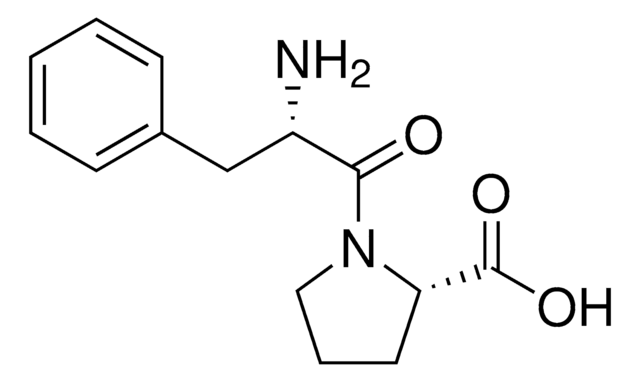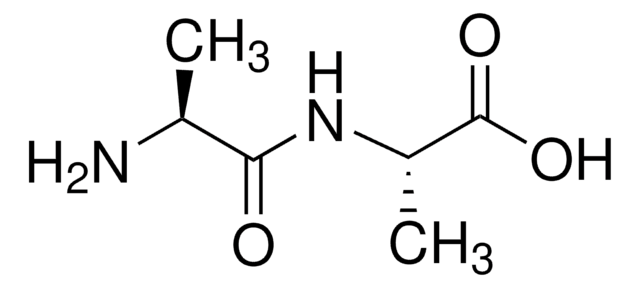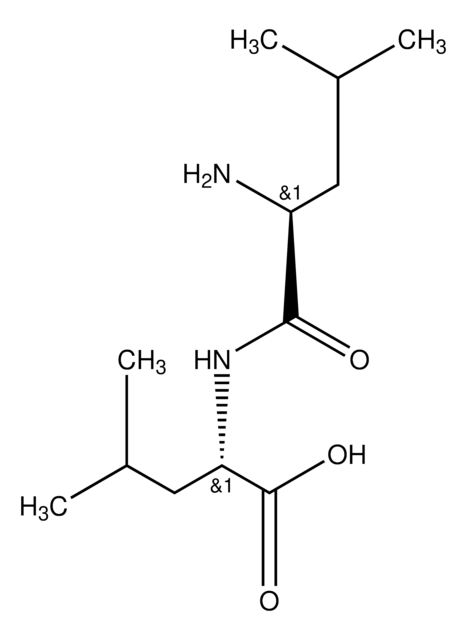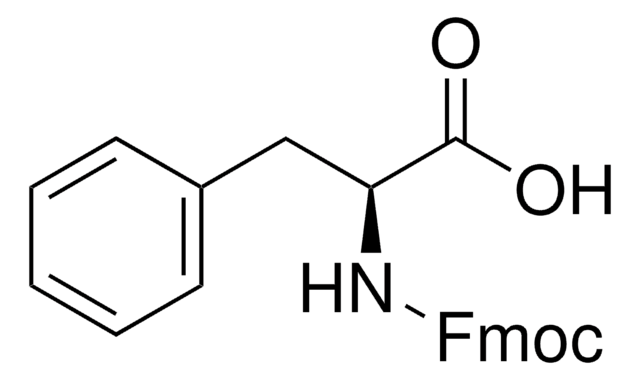P4126
Phe-Phe
≥98% (TLC)
Synonym(s):
L-Phenylalanyl-L-phenylalanine, Di-L-phenylalanine
Sign Into View Organizational & Contract Pricing
All Photos(1)
About This Item
Linear Formula:
C6H5CH2CH(NH2)CONHCH(CH2C6H5)COOH · H2O
CAS Number:
Molecular Weight:
312.36 (anhydrous basis)
EC Number:
MDL number:
UNSPSC Code:
12352202
PubChem Substance ID:
NACRES:
NA.26
Recommended Products
Product Name
Phe-Phe,
Assay
≥98% (TLC)
Quality Level
form
powder
color
white
storage temp.
−20°C
SMILES string
N[C@@H](Cc1ccccc1)C(=O)N[C@@H](Cc2ccccc2)C(O)=O
InChI
1S/C18H20N2O3/c19-15(11-13-7-3-1-4-8-13)17(21)20-16(18(22)23)12-14-9-5-2-6-10-14/h1-10,15-16H,11-12,19H2,(H,20,21)(H,22,23)/t15-,16-/m0/s1
InChI key
GKZIWHRNKRBEOH-HOTGVXAUSA-N
Looking for similar products? Visit Product Comparison Guide
Storage Class Code
11 - Combustible Solids
WGK
WGK 3
Flash Point(F)
Not applicable
Flash Point(C)
Not applicable
Personal Protective Equipment
dust mask type N95 (US), Eyeshields, Gloves
Choose from one of the most recent versions:
Already Own This Product?
Find documentation for the products that you have recently purchased in the Document Library.
Customers Also Viewed
Dmitriy Berillo et al.
Journal of colloid and interface science, 368(1), 226-230 (2011-12-02)
In this study, it was found that macroporous hydrogels were formed when self-assembly of fluorenyl-9-methoxycarbonyl (Fmoc)-diphenylalanine (Phe-Phe) peptides was induced using glucono-δ-lactone (GdL) in apparently frozen samples. Formed cryogels exhibited a heterogeneous structure with pore walls of densely packed fibres
H Mozsolits et al.
Biophysical journal, 77(3), 1428-1444 (1999-08-31)
The interaction of three bioactive peptides, bombesin, beta-endorphin, and glucagon with a phosphatidylcholine monolayer that was immobilized to porous silica particles and packed into a stainless steel column cartridge, has been studied using dynamic elution techniques. This immobilized lipid monolayer
Robert C Dunbar et al.
Journal of the American Chemical Society, 133(5), 1212-1215 (2011-01-05)
Chirality reversal of a residue in a peptide can change its mode of binding to a metal ion, as shown here experimentally by gas-phase IR spectroscopy of peptide-metal ion complexes. The binding conformations of Li(+), Na(+), and H(+) with the
Supramolecular nanofibers and hydrogels of nucleopeptides.
Xinming Li et al.
Angewandte Chemie (International ed. in English), 50(40), 9365-9369 (2011-09-29)
Wayne M Patrick et al.
The FEBS journal, 277(21), 4549-4561 (2010-09-30)
Candida albicans exo-β-1,3-glucanase (Exg; EC 3.2.1.58) is implicated in cell wall β-D-glucan remodelling through its glucosyl hydrolase and/or transglucosylase activities. A pair of antiparallel phenylalanyl residues (F144 and F258) flank the entrance to the active site pocket. Various Exg mutants
Our team of scientists has experience in all areas of research including Life Science, Material Science, Chemical Synthesis, Chromatography, Analytical and many others.
Contact Technical Service